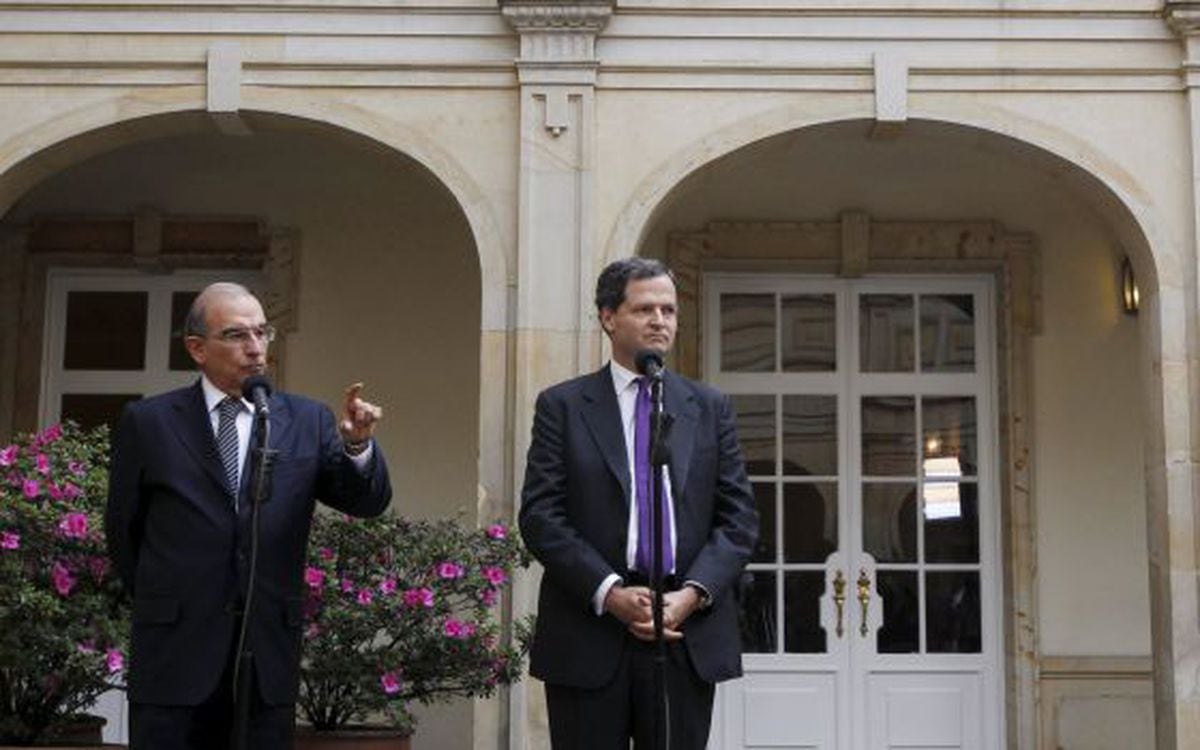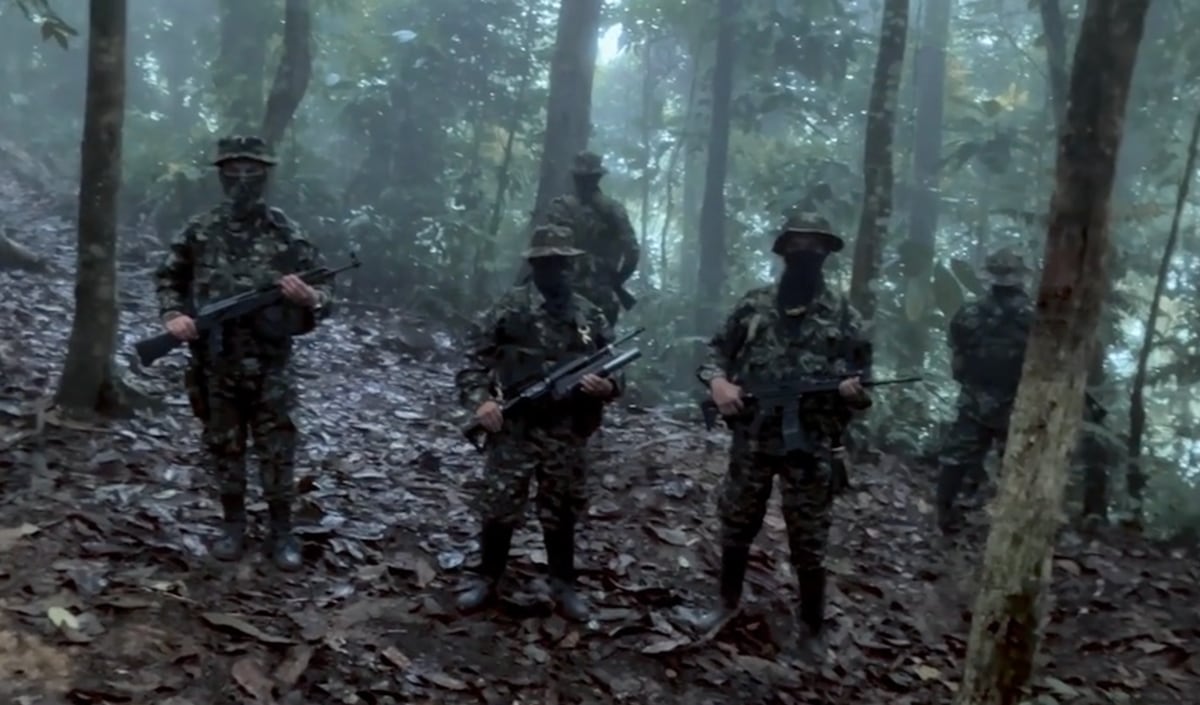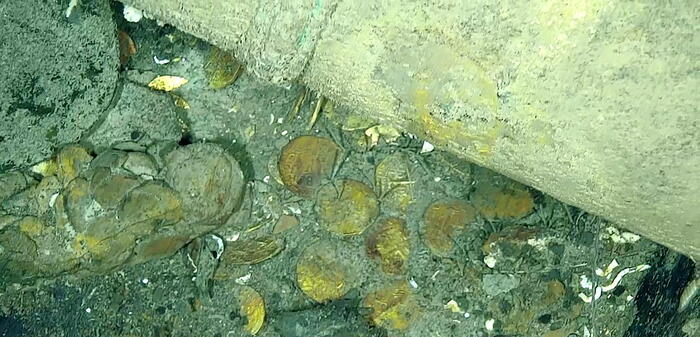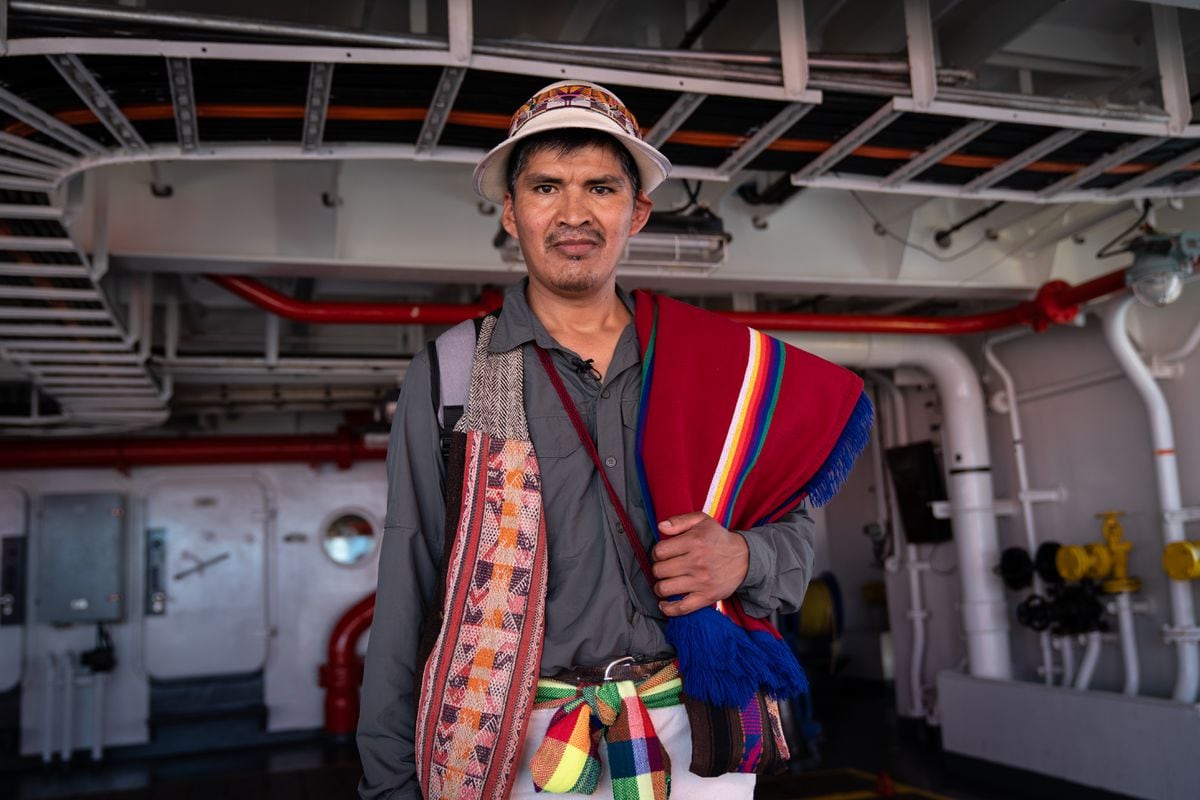Humberto de la Calle and Sergio Jaramillo, in a file image, at the Casa de Nariño, in Bogotá. JOHN VIZCAINO
Gustavo Petro wants calm around peace.
The president of Colombia has convened in Cartagena de Indias next week the negotiators of the Government of Juan Manuel Santos with the FARC and his own who are in dialogue with the ELN to smooth things over, government sources confirmed to EL PAÍS.
Last week, the former openly criticized the latter for giving in too much with the last armed guerrilla in the country, which did not sit well with the government.
Now they will have the opportunity to reconcile and exchange experiences.
Humberto de la Calle, Sergio Jaramillo, María Ángela Holguín and the Spanish Enrique Santiago, among others, are invited to the event.
The list has been agreed between Petro and Santos, who met on Wednesday at the Casa de Nariño, the presidential residence.
After the parenthesis that marked the four-year term of Iván Duque, the discussion about the search for peace has returned to settle in the public debate on account of total peace, with which Petro wants to implement the agreement with the extinct FARC with greater determination, dialogue with the ELN and at least a part of the dissidences and advance a policy of submission to other criminal groups, such as the Clan del Golfo, with which they have just suspended the ceasefire.
The two main architects of the Havana talks have made no secret of their objections to some aspects of total peace, especially the new agenda agreed at the table with the ELN, announced this month from Mexico.
The ELN "scored all the goals" into the government, which opens the door to "an endless negotiation," warned Jaramillo, the Santos peace commissioner, while today's senator De la Calle, chief negotiator at the time, said the " vague language” on neuralgic issues such as laying down weapons.
At the end of the Santos government (2010-2018), the agenda was agreed with the National Liberation Army that Duque inherited (2018-2022), a staunch critic of the agreement with the FARC.
Duque terminated that other process after the attack against a Police school in Bogotá that caused 23 deaths, in January 2019. Since the beginning of his term, Petro had proposed to resume talks with the ELN from the same point in that were suspended.
That original agenda was the one that had been on the table until this month, when the government and guerrilla delegations closed the second cycle in Mexico City with the announcement of a New Agenda for Peace Talks.
While the guerrillas did not want to recognize Colombia as a Social State of Law, the State gives it the character of a "rebel military political organization."
"There is no evidence of the guerrilla's willingness to end the conflict," Jaramillo reacted from Brussels in an interview with W Radio.
"It is true that the Petro government inherited a general, ambiguous agenda, but it seems to me that those ambiguities that were in the agenda were all resolved in favor of the ELN," he said.
In his interpretation, this roadmap intends to review the economic model and the political regime of Colombia,
Jaramillo's criticisms were added to those of De La Calle, who questioned the cattle leader José Felix Lafaurie, a representative of the most right-wing sectors whom Petro included in his negotiating team: "Why did you unleash implacable opposition to the process with the FARC, when in the current agenda with the ELN there are much more compromising issues for the State and society?
Both had already asked the Government of Petro last December, in a joint letter, to move from words to action in the implementation, stalled in the Duque period, "so that the peace process does not continue to lose ground in the territories of Colombia".
The friction did not end there.
"Deaf ears fall to foolish words," responded Foreign Minister Álvaro Leyva, who advised the FARC in the Havana talks.
“It was necessary to amend the plan to some high peace commissioner of yesteryear.
Being smart expost to show off is like being a football commentator on Monday mornings.
Easy peasy.
The best contribution to peace is to build, not destroy, ”he wrote on his social networks.
“There are no masters of peace here, nor are there wise-ass haruspices in such a delicate matter,” he added later.
In many regions, the war that the agreements with the FARC sought to extinguish is still burning, humanitarian challenges persist and violence has intensified.
There are seven non-international armed conflicts between various actors, according to the annual report that the International Committee of the Red Cross (ICRC) presented this week in Bogotá.
Three of them are between the Government and some armed actor: the ELN, the Clan del Golfo and the FARC dissidents.
The other four are between the ELN and the Clan del Golfo, in addition to those that confront these dissident structures with two other factions that consider themselves heirs to the FARC: the Segunda Marquetalia and the Border Commandos.
Subscribe here
to the EL PAÍS newsletter on Colombia and receive all the latest information on the country.


/cloudfront-eu-central-1.images.arcpublishing.com/prisa/NCQFUQJJ4ZHRJLKNWPLQ2MFQR4.jpeg)



/cloudfront-eu-central-1.images.arcpublishing.com/prisa/ZORZGWU62RGZNLD7HNVBXQZRBA.jpeg)


